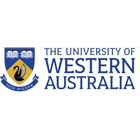Master of Biological Science
Master of Biological Science
The Master of Biological Science will developed advanced understanding of the evolution, diversity, physiology, reproduction, behaviour and ecology of plants and animals, and the skills to apply this knowledge to the management of natural systems and the species they support. Western Australia is a terrestrial biodiversity hot-spot, offering exceptional opportunities…
Categories
COURSE DESCRIPTION
The Master of Biological Science will developed advanced understanding of the evolution, diversity, physiology, reproduction, behaviour and ecology of plants and animals, and the skills to apply this knowledge to the management of natural systems and the species they support.
Western Australia is a terrestrial biodiversity hot-spot, offering exceptional opportunities to study unique plants and animals that have evolved in our wetlands, forests and deserts. You’ll gain an advanced understanding and practical skills in ecology, evolution, genetics, species identification, reproduction and behaviour, and can apply your knowledge to conserving species and their habitats. You also have the opportunity to design, execute, analyse and report on field and/or laboratory-based projects, supported by world-class researchers.
Course Structure
Postgraduate coursework degrees and combined (coursework and dissertation) degrees comprise 12-16 units, depending on your background, and you can specialise in Conservation Biology, Ecology or Zoology.
Career Pathways
Biologist, Botanist, Conservation Biologist, Conservation Officer, Consultant, Ecologist, Environmental Manager, Environmental Scientist, Parks Officer, Quarantine Officer, Research Scientist, Research Technician, Rehabilitation Manager, Science Communicator, Wildlife Officer, Zoologist.
Further Study
Students completing this degree may have the option to pursue further studies in research.
REQUIREMENTS
(1) To be considered for admission to this course an applicant must have— (a) a Bachelor of Science, or an equivalent qualification, as recognised by UWA; and (b) the equivalent of a UWA weighted average mark of at least 50 per cent; and (c) met the prerequisite for the chosen specialisation (2) For the Conservation Biology specialisation an applicant must have successfully completed prior studies at a tertiary level in biology (excluding human biology); or in a related cognate discipline, as recognised by UWA (3) For the Ecology specialisation an applicant must have successfully completed prior studies at a tertiary level in biology (excluding human biology); or in a related cognate discipline, as recognised by UWA (4) For the Zoology specialisation an applicant must have successfully completed prior studies at a tertiary level in animal science; or in a related cognate discipline, as recognised by UWA
English language requirements:
TOEFL (paper-based): 570 with a Test of Written English (TWE) of no less than 4.5
IBT TOEFL (Internet-based test score): 82 with 22 for writing, 20 for speaking, 20 for listening, and 18 for reading
IELTS (Academic): 6.5 (no band lower than 6.0)
Cambridge Certificate of Proficiency in English: C pass
Cambridge Certificate in Advanced English: B grade
Pearson Test of English (PTE) (Academic): Overall score of 64 with a minimum score of 64 in the Reading and Writing sections, 59 in the Speaking section and 54 in the Listening section
EDUCATIONAL INSTITUTION
The University of Western Australia (UWA) is a proud member of the Group of Eight and is the only university in Western Australia to be ranked in the world top 100 universities (QS World University Rankings 2023).UWA’s main campus is located in Perth, Western Australia and is home to more than 23,000 students. Perth is Australia’s fourth-largest city with over two million people from a variety of cultures worldwide, a strong economy and vibrant lifestyle. Perth is one of the country’s most affordable cities, the closest major Australian city to Asia, and in the same time zone as most of Asia.

